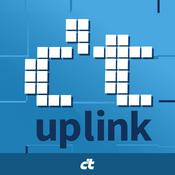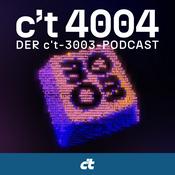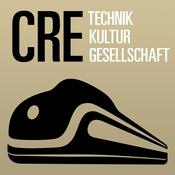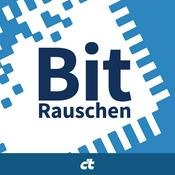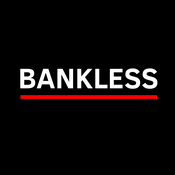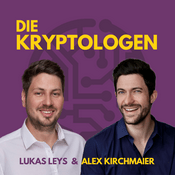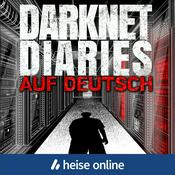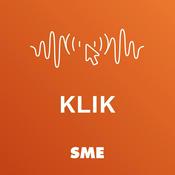86 Episoden
Patroni Backups: when pgBackRest and Argo CD have your back (literally), with Ziv Yatzik
03.2.2026 | 25 Min.Your database backup strategy shouldn't be the thing that takes your production systems down.
Ziv Yatzik manages 600+ Postgres clusters in a closed network environment with no public cloud. After existing backup solutions proved unreliable — causing downtime when disks filled up — his team built a new architecture using pgBackRest, Argo CD, and Kubernetes CronJobs.
In this episode:
Why storing WAL files on shared NAS storage prevents backup failures from cascading into database outages
How GitOps with Argo CD lets them manage backups for hundreds of clusters by adding a single YAML file
The Ansible + Kubernetes hybrid approach that keeps VM-based Patroni clusters in sync with Kubernetes-orchestrated backups
A practical blueprint for making database backups boring, reliable, and safe.
Sponsor
This episode is sponsored by LearnKube — get started on your Kubernetes journey through comprehensive online, in-person or remote training.
More info
Find all the links and info for this episode here: https://ku.bz/Rg_sQYSmw
Interested in sponsoring an episode? Learn more.- Most developers assume Kubernetes requires an enterprise budget. Varnit Goyal proves otherwise — he built a full three-node Kubernetes cluster for $2.16/month using Rackspace Spot Instances.
The trick: pick non-default instance types, distribute nodes across low-demand regions, and let Kubernetes handle rescheduling when nodes get preempted. For service exposure, he replaced the $10/month load balancer with Tailscale Funnel — free.
In this episode:
How Spot Instance bidding works and which strategies keep costs and preemption low
Using Tailscale Kubernetes operator as a free alternative to traditional load balancers
Running real development dependencies (Kafka, Elasticsearch, Postgres) on a budget cluster
A practical walkthrough of what Kubernetes actually needs to function — and what you can strip away.
Sponsor
This episode is sponsored by LearnKube — get started on your Kubernetes journey through comprehensive online, in-person or remote training.
More info
Find all the links and info for this episode here: https://ku.bz/HpVyQMVv0
Interested in sponsoring an episode? Learn more. - Dilshan Wijesooriya, Senior Cloud Engineer, discusses a real incident where migrating EKS nodes to AL2023 caused the cluster autoscaler to lose AWS permissions silently.
You will learn:
Why AL2023 blocks pod access to instance metadata by default, breaking components that relied on node IAM roles (like cluster autoscaler, external-DNS, and AWS Load Balancer Controller)
How to implement IRSA correctly by configuring IAM roles, Kubernetes service accounts, and OIDC trust relationships, and why both AWS IAM and Kubernetes RBAC must be configured independently
The recommended migration strategy: move critical system components to IRSA before changing AMIs, test aggressively in non-production, and decouple identity changes from OS upgrades
How to audit which pods currently rely on node roles and clean up legacy IAM permissions to reduce attack surface after migration
Sponsor
This episode is sponsored by LearnKube — get started on your Kubernetes journey through comprehensive online, in-person or remote training.
More info
Find all the links and info for this episode here: https://ku.bz/T_YPfTfDb
Interested in sponsoring an episode? Learn more. - Fabián Sellés Rosa, Tech Lead of the Runtime team at Adevinta, walks through a real engineering investigation that started with a simple request: allowing tenants to use third-party Kafka services. What seemed straightforward turned into a complex DNS resolution problem that required testing seven different approaches before a working solution was found.
You will learn:
Why Kafka's multi-step DNS resolution creates unique challenges in multi-tenant environments, where bootstrap servers and dynamic broker lists complicate standard DNS approaches
The iterative debugging process from Route 53 split DNS through Kubernetes native pod DNS config, custom DNS servers, Kafka proxies, and CoreDNS solutions
How to implement the final solution using node-local DNS and CoreDNS templating with practical details including ndots configuration and Kyverno automation
Platform engineering evaluation criteria for assessing solutions based on maintainability, self-service capability, and evolvability in multi-tenant environments
Sponsor
This episode is sponsored by LearnKube — get started on your Kubernetes journey through comprehensive online, in-person or remote training.
More info
Find all the links and info for this episode here: https://ku.bz/NsBZ-FwcJ
Interested in sponsoring an episode? Learn more. - Amos Wenger walks through his production incident where adding a home computer as a Kubernetes node caused TLS certificate renewals to fail. The discussion covers debugging techniques using tools like netshoot and K9s, and explores the unexpected interactions between Kubernetes overlay networks and consumer routers.
You will learn:
How Kubernetes networking assumptions break when mixing cloud VMs with nodes behind consumer routers, and why cert-manager challenges fail in NAT environments
The differences between CNI plugins like Flannel and Calico, particularly how they handle IPv6 translation
Debugging techniques for network issues using tools like netshoot, K9s, and iproute2
Best practices for mixed infrastructure including proper node labeling, taints, and scheduling controls
Sponsor
This episode is sponsored by LearnKube — get started on your Kubernetes journey through comprehensive online, in-person or remote training.
More info
Find all the links and info for this episode here: https://ku.bz/6Ll_7slr9
Interested in sponsoring an episode? Learn more.
Weitere Technologie Podcasts
Trending Technologie Podcasts
Über KubeFM
Discover all the great things happening in the world of Kubernetes, learn (controversial) opinions from the experts and explore the successes (and failures) of running Kubernetes at scale.
Podcast-WebsiteHöre KubeFM, Dwarkesh Podcast und viele andere Podcasts aus aller Welt mit der radio.at-App
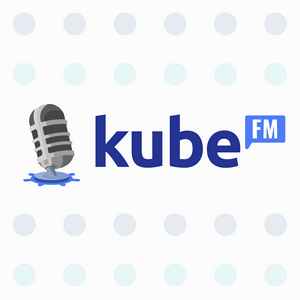
Hol dir die kostenlose radio.at App
- Sender und Podcasts favorisieren
- Streamen via Wifi oder Bluetooth
- Unterstützt Carplay & Android Auto
- viele weitere App Funktionen
Hol dir die kostenlose radio.at App
- Sender und Podcasts favorisieren
- Streamen via Wifi oder Bluetooth
- Unterstützt Carplay & Android Auto
- viele weitere App Funktionen


KubeFM
Code scannen,
App laden,
loshören.
App laden,
loshören.



